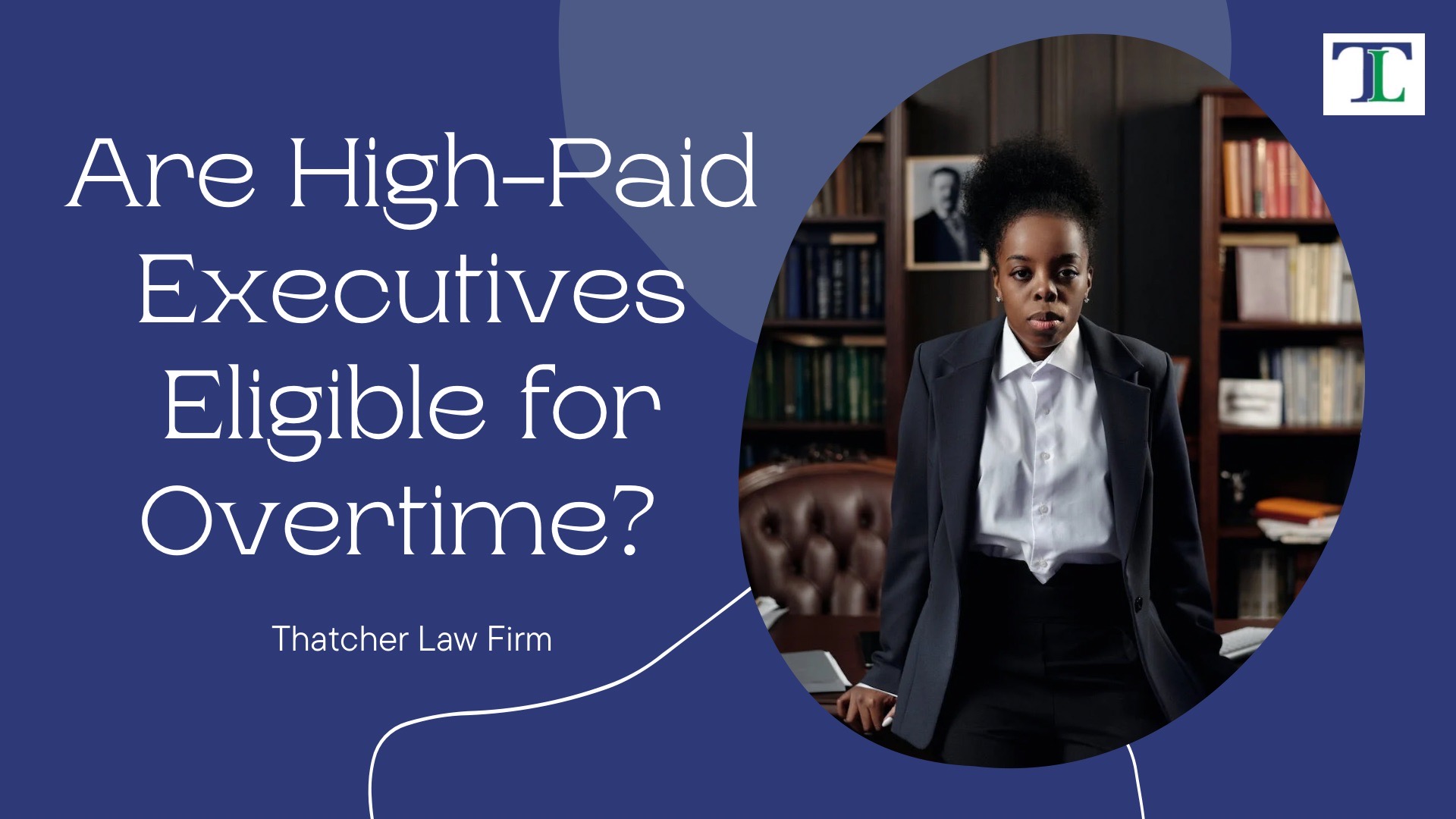Are High-Paid Executives Eligible for Overtime?
Under the federal Fair Labor Standards Act (FLSA), a majority of U.S. employees are entitled to minimum wage and overtime pay of at least 1-1/2 times their regular rate of pay if they work more than 40 hours in a week.
Some types of employees may be exempt from this law If they meet the following criteria:
- The employee is salaried and earns no less than $684 per week ($455 in the case below)
- The employee’s primary duty is managing the enterprise, a recognized department, or a subdivision of the enterprise
- The employee customarily and regularly directs the work of at least two full-time employees or the equivalent
- The employee has the authority to hire and fire other employees, or their recommendations on hiring or firing are given particular weight
In a recent overtime case heard by the U.S. Supreme Court, the plaintiff was a highly paid executive of Helix Energy Solutions. He routinely worked 12-hour days for 28 days in a row. In 2017, Helix fired him. He, in turn, sued for unpaid overtime.
At first glance, he appears to meet all of the criteria for an executive exemption to the FLSA. He earned more than $200,000 a year. His job as a “toolpusher” qualified him as an enterprise and employee manager. He directed the work of between 12 and 14 employees and had the authority to hire and fire people. However, the plaintiff was not paid on a salary basis. Instead, Helix paid him a daily rate of $963.
A Divided Supreme Court ruled that the exemption did not apply.
In a divided ruling, the Supreme Court found that Helix had failed to meet the executive exemption to the FLSA because they did not pay the plaintiff a fixed salary. This was true even though he was highly compensated.
The minimum salary required by the exemption, $455 per week at the time of the plaintiff’s employment with Helix, is a mere fraction of this plaintiff’s take-home pay. Justice Brett Kavanaugh’s dissent was joined by Justice Samuel Alito. Kavanaugh stated that he would have ruled in favor of Helix, finding that the employer was entitled to the executive exemption.
“The FLSA was enacted to protect low-wage, blue-collar workers from workplace exploitation, not to give massive windfalls to white-collar supervisors already making six figures,” said an attorney for Helix.
If you are an employer wanting to ensure your business is complying with the FLSA and applicable state laws, or an employee with questions about whether you are entitled to overtime compensation, contact Thatcher Zavaro & Mani at 301-850-1246 for a consultation. www.ThatcherLaw.com. Follow us on:

